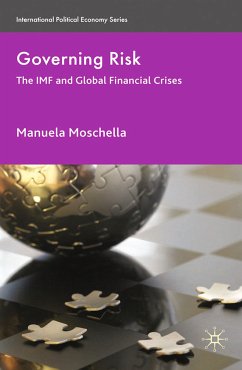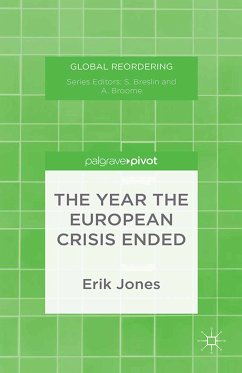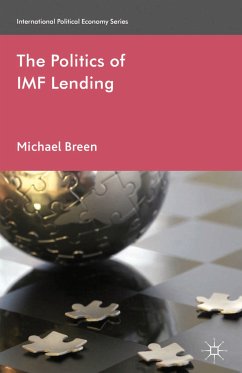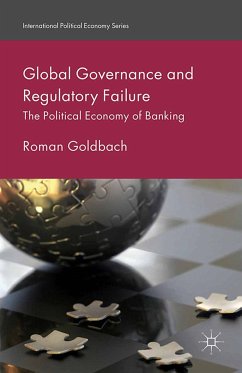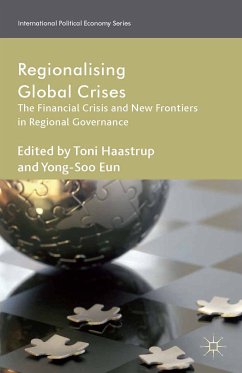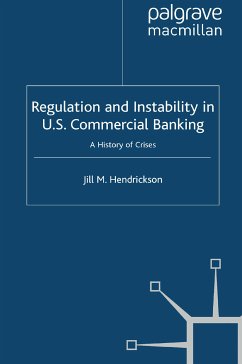Dieser Download kann aus rechtlichen Gründen nur mit Rechnungsadresse in A, B, BG, CY, CZ, D, DK, EW, E, FIN, F, GR, HR, H, IRL, I, LT, L, LR, M, NL, PL, P, R, S, SLO, SK ausgeliefert werden.
'During the past two decades the IMF has transitioned from global bully boy to ignored agony aunt to, following the most recent crises, a humbled cooperative player in global financial governance. Moschella's superb volume walks us through the Fund's ideational shift on capital controls from orderly to market-led liberalisation, explaining the whys and hows in the interplay between ideas and policy reform. Her focus on 'legitimacy feedbacks' as a mechanism of ideational influence is a particularly noteworthy contribution to constructivist scholarship on change in the international political economy.' - Leonard Seabrooke, Professorof International Political Economy and Economic Sociology, Copenhagen Business School, Denmark and University of Warwick, UK
'In the midst of a world economic crisis, this is a timely and important book that clearly explains the evolution of rules regarding global finance over the past twenty years. Moschella, one of the brightest young scholars in the field, provides a fascinating agent-centered constructivist account of the ever-changing consensus regarding financial liberalization, taking her readers inside the walls of the IMF to illuminate the dynamic and often contentious - interaction between ideas and policy. ' - Catherine Weaver, Associate Professor of Public Affairs, The University of Texas at Austin, USA

